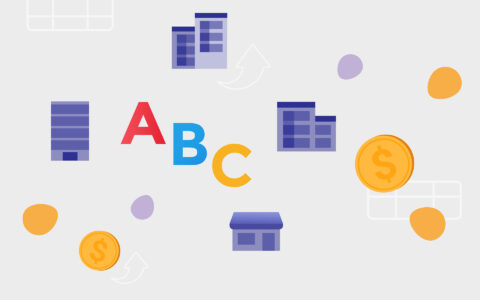Strategies to Overcome Sales Objections and Close More Deals
Sales objections are nightmares of any businessman. Learn how to communicate with your potential customers. How to show them the value of your product or services. And always win them over.

In sales, there is no avoiding sales objections. When a prospective buyer expresses doubts or complete disinterest in your product, it can be easy to feel deflated. But it doesn’t need to be this way.
Learning how to address customer concerns and objections can help you build trust, improve customer relationships, and boost your sales.
The word “no” can be hard to hear. But with my tips, you can overcome sales objections and close more deals.
Table of contents:
What Is a Sales Objection?
The Most Common Types of Sales Objections
Steady Steps to Overcome Sales Objections
Sales Objections Are Always Disheartening
What Is a Sales Objection?
A sales objection is an explicit reason given by a prospective customer that prevents them from purchasing your product or service.
Often, objections include concerns around budget, the product itself, or even the reputation of your company.
Sales teams regularly deal with sales objections, and it is important to develop strategies to deal with them rather than viewing them as an outright rejection.
The Most Common Types of Sales Objections
Typically, objections will fall into one of the following categories:
- Money: The buyer states budget or excessive costs as a barrier.
- Need: The buyer doesn’t see how your product or service will benefit them.
- Urgency: The buyer doesn’t view this purchase as a priority right now.
- Trust: The buyer isn’t confident in the product, service, or your company.
These common objections might seem like massive hurdles, but you can overcome them with some simple strategies.

Steady Steps to Overcome Sales Objections
Alongside an effective marketing strategy, a well-thought-out plan for making sales and overcoming sales objectives can help you secure more sales and boost your revenue.
When met with a customer who doesn’t want to commit, resist the temptation to jump in straight away with a response or get defensive. When you react too quickly, you risk misunderstanding their concerns.
Make sure you:
- Spend time attentively listening to their objection.
- Do your best to understand their needs.
- Ensure your body language or verbal cues indicate to the customer that you are listening intently.
- Don’t interrupt the buyer when they express themselves.
- Don’t react defensively.
In this section, I will share some of the most common sales objections and strategies to overcome them.
1. Budget: Consider Offering a Discount
As we discussed earlier, money is one of the most frequently cited sales objections. This might sound like:
- “The cost is too high.”
- “We can’t afford to purchase your product/service.”
- “We have a low budget for this right now.”
The good news is that pricing concerns are usually something that you can work around. For example, you may be able to offer a discount, or an offer such as a free trial period. Of course, this needs to be done carefully so as not to lower your margins.

It can also be true that when buyers claim money is an issue, it may not be the real reason for the objection.
It’s easy to blame a lack of budget even though this may not be a true barrier to sales. Listening intently to the customer will help you to understand their business needs.
For example, they might be completely unfamiliar with the digital products you provide and would benefit from a demonstration or trial.
To overcome concerns connected with money, it’s also important that you reiterate the value that your product or service will bring to the prospective customer.
Often, when customers claim they don’t have the money, they’re really saying they don’t see the value in your product. If they value what you have to offer, they can find the money to pay for it.
2. Lack of Trust: Leverage Social Proof
Sometimes, prospective buyers might express concerns about a lack of trust or confidence in your company or your products.
For this type of objection, it’s important to really focus on listening and understanding their needs and responding with empathy and sincerity.
Doing so promotes trust and reassures the buyer that you can meet their needs. While sales call scripts can be a great starting point, it is essential to ensure your responses are personalized to the buyer and their needs.
In this case, it is useful to share a list of references to reassure the potential client that you have worked on accounts like theirs before. This is especially helpful if they recognize a company that is already using your services.

3. Timing: Highlight Value
Prospective customers may claim that it’s “not the right time” for them to do business with you. In this case, your job is to convince them that they do in fact need your product right now and create a sense of urgency.
This goes back to establishing the value they will get from your product or service. When responding to objections around timing, it can be useful to highlight how your offering can save them time or solve a problem quickly.
4. Lack of Need: Provide Relevant Figures
If you are faced with a sales objection around lack of need, it is helpful to have concrete evidence and data. You must show prospects why they do need your product.
For example, you could say a fact such as “Our data shows that this product increases productivity by 15%.” or “Feedback from our users show that 95% of our customers would recommend this product.”
This strategy works even better if you can provide data or evidence which is related to a problem they are trying to solve. For example, your buyer might want to know how your AI solutions can strengthen customer relationships, and how you can prove it.
5. Fear of Change: Reassure
Your prospective buyer has been using the same provider for years. Or they are using services which are outdated but are reluctant to change their ways. These types of sales objections might sound like:
- “We have been using a similar service for 15 years.”
- “We use (competitors name) for a similar service.”
- “We like the way we do things here; we don’t need to change it.”
When faced with objections of this nature, highlight recent industry developments or changes and how important it is to keep up with technological advances or industry shifts.
For example, if you are selling call center solutions, you could highlight contact center industry trends and demonstrate how your solution will allow your customer to keep up.

Make sure you don’t patronize your prospective buyer. Make them see that you are an expert in your field and that your product or service is a better choice that will enable them to stay ahead of the curve.
For example, it might be relevant to discuss predictive vs. progressive dialer solutions you can offer to increase the effectiveness of customer service solutions for your buyer.
If they mention that they already do business with one of your competitors, let them know how your services differ and what value you can add compared to the competition.
It is important to know your competitors' offerings and pricing in advance so that you are armed with all the information needed to convince your prospect to change provider.
Sales Objections Are Always Disheartening
Yes, sales objections can be disheartening. But you can overcome them with the right strategies.
Taking time to listen to the buyer's objection carefully is essential. Understand their pain points and make it clear how you can solve their problem.
Once you understand the real reason for the sales objection, you can form a response that will take you closer to making the sale. Always be sure to follow the steps of listening, understanding, and responding.











